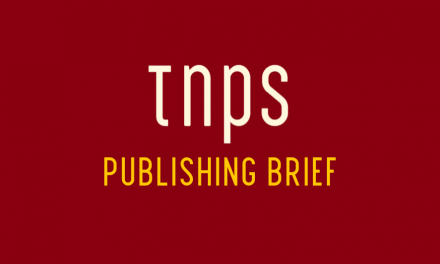“This is not a good time to be technology-averse. Artificial intelligence stands to drive significant productivity gains in book publishing processes, from editorial to marketing. The companies that embrace AI will almost certainly pull ahead of those that don’t.” – Thad McIlroy
Read Thad’s full essay here.
Publishing’s aversion to technology of course goes beyond just AI. Even in the mature western book markets we see this daily in publisher resistance to digital books, to digital subscription, etc, and in many of the emerging markets this extends to all facets of technological change within the industry, as I’ve covered in TNPS many times.


In some cases this is driven by irrational mindset – a book is not a book unless its printed on paper in black ink, and reading is not reading unless there’s a paper book in your hand. And lately that a book is not a book unless it’s written by a human. Doh!
But much of the resistance is driven by cosy corporate short-term interest, as we see with publisher resistance to subscription streaming and manipulation of consumer choice to protect the print status quo.
The bitter irony is that AI and subscription and other tech advances stand to make publishers more profitable and open up more revenue streams to creators.
Tech-based publishing players like Amazon understand that, as we see in India with their audiobook push into the non-reader market – surely the Holy Grail of publishing.

Digital first players from Bookouture to Storytel, BookBeat to Scribd, Nextory to YouScribe, are showing us daily that the consumer demand is there and that the profits are potentially there.
But traditional mainstream publishing is predominantly led by the early-tech generation that grew up when phones were for talking to people, TVs were boxes in the corner of the room, a home computer was a ZX Spectrum or a Commodore 64 with a cassette player attached, and the very definition of a book was ink on paper, sold in a bookshop.
And boy, does it show.





